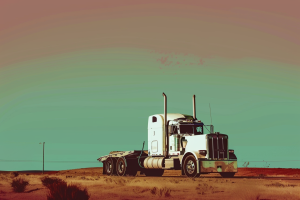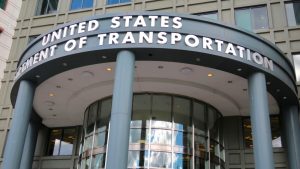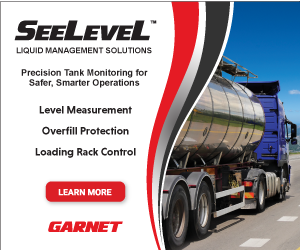- Are You Overpaying for Towing? Discover how the USDOT’s new initiatives are tackling predatory towing fees to protect truckers and enhance industry fairness.
- Navigating the Road Ahead: Dive into the latest regulatory changes and what they mean for the future of transportation fees.
- Your Voice Matters: Learn how the extended public comment period until August 1, 2024, could influence the towing practices nationwide.

Predatory towing practices pose significant challenges, urging ongoing legislative adjustments for protection and transparency.
In 2024, the conversation around predatory towing fees has intensified, spotlighting the urgent need for regulatory oversight. As commercial truckers face exorbitant costs from tow truck companies, the USDOT is stepping forward with proposed rules aimed at eliminating these financially crippling charges. For a detailed overview of the regulatory landscape in the trucking industry, check out this page.
Understanding Predatory Towing Fees and Their Impact
The Current Landscape of Towing Fees
Predatory towing fees, while not new, have escalated in discussion as regulatory bodies like the USDOT seek to mitigate their impact. These fees often manifest as inflated charges for basic services, especially in situations where truckers find themselves in vulnerable positions such as post-accident or mechanical failures on highways.
The Role of USDOT in Towing Regulations
Proposed Changes and Their Implications

Financial stability for truckers hinges on fair towing practices—hidden fees can cripple their operations.
The United States Department of Transportation (USDOT) has been at the forefront of advocating for clearer and fairer towing practices. Their initiative focuses on the clarity of fees, seeking to eliminate hidden charges that can accumulate and significantly impact the financial stability of truckers. The proposed regulations aim to ensure that all fees are disclosed upfront and are justified by the service provided, preventing exploitation during emergency towing situations. Learn more about the USDOT’s initiatives in transportation safety and oversight, explore this link.
Enjoying our insights?
Subscribe to our newsletter to keep up with the latest industry trends and developments.
Stay InformedHow Junk Fees Affect Truckers
“Predatory fees can lead to significant financial distress for truckers, who may already be facing lost revenue due to vehicle downtime. The regulation of these fees is seen as a crucial step in protecting not only truckers but also the economic flow in the logistics and transport sectors where increased operational costs can lead to higher consumer prices.“
For additional insights into the operational costs affecting the trucking industry, explore this page.
Stakeholder Perspectives on Towing Fees
Industry Leaders Debate the Proposed Rules

Predatory towing fees can lead to significant financial distress for truckers, urging crucial regulatory reforms to safeguard their livelihoods.
Stakeholders from various sectors of the transportation industry have expressed mixed reactions to the proposed changes. While many advocate for stricter regulations to prevent predatory practices, others argue that the towing industry also faces rising costs and complexities, especially with the advent of advanced technologies in newer vehicles that may require specialized recovery equipment and training. Understand the different stakeholders’ views on towing fees, visit this link.
Real-Life Consequences of High Towing Fees
Documented cases and testimonials from trucking professionals highlight the urgency of reform. For instance, instances where truckers were billed exorbitant amounts for short tows or minor assistance services under emergency conditions have spurred calls for legislative action. Discover how FMCSA is enhancing trucking industry standards, follow this link.
A Brief History of Towing in the Trucking Industry
The history of towing in the trucking industry is deeply intertwined with the development of automotive and highway systems. Here are some key points and details about its evolution:
Origins and Development
- Early 20th Century: The concept of towing emerged with the proliferation of automobiles. The first tow truck is credited to Ernest Holmes Sr. of Chattanooga, Tennessee, who in 1916 invented the tow truck after a challenging experience with retrieving a car from a creek.
- Growth of Road Networks: As road networks expanded in the 1920s and 1930s, so did the need for vehicle recovery services. Trucks, often used for logistics and transportation of goods, frequently required recovery from breakdowns and accidents.
- World War II: The importance of logistics during the war led to innovations in truck design and increased the need for reliable towing services to support military and civilian needs.
Post-War Expansion
- Interstate Highway System: The establishment of the Interstate Highway System in the 1950s under President Dwight Eisenhower dramatically increased the volume of truck traffic and, correspondingly, the demand for towing services.
- Commercialization and Regulation: With the growth of the trucking industry, towing services became more commercialized. The 1970s and 1980s saw the introduction of regulations concerning safety, operating standards, and licensing to professionalize towing services, aligning them more closely with the broader logistics and transport industry.
Modern Era
- Technology Integration: Today, towing services use advanced technologies like GPS for location tracking, mobile apps for service requests, and sophisticated mechanisms for safer and quicker recovery operations.
- Heavy-Duty Towing: Specialized heavy-duty tow trucks and equipment have been developed to handle large commercial vehicles like semis and buses, which are critical to the trucking industry.
- Legislation and Safety: Ongoing legislative changes continue to shape the towing industry, focusing on safety, pricing transparency, and fair practices to protect both the tow operators and customers, particularly in the commercial sector.
- Training and Certification: Professional training and certification have become more prevalent, ensuring that towing operators are skilled in handling heavy machinery and complex recovery scenarios.
Key Challenges
- Predatory Towing: The trucking industry often faces challenges with predatory towing practices, where tow operators exploit situations to charge exorbitant fees. This has led to calls for more stringent regulations and transparent billing practices.
- Insurance and Liability: Towing operations involve significant risks, making insurance and liability major considerations for both tow operators and trucking companies.
The towing industry has evolved from simple, manually-operated equipment to sophisticated operations involving state-of-the-art machinery and complex logistics. It plays an indispensable role in maintaining the flow of goods and services, especially critical given the reliance on trucking for transporting goods across distances.
Recent Developments in Towing Fee Regulations
Public Meeting Announcements and Stakeholder Engagement
USDOT’s Strategic Moves for Transparency
FMCSA’s Public Meeting and Stakeholder Engagement
The FMCSA is at the forefront, implementing strategic regulations to combat predatory towing fees and protect the trucking industry’s integrity.
The Federal Motor Carrier Safety Administration (FMCSA) has scheduled public meetings to further engage with stakeholders about the transparency of towing fees. These meetings are part of a broader effort to gather real-time input from those directly affected by these fees, ensuring that proposed regulations are grounded in the practical realities of the road. Stay updated on the latest trends in safety regulations within the trucking sector, check out this link
Enhancing Regulatory Frameworks
As part of its commitment to overhaul towing fee practices, the USDOT has proposed a comprehensive set of guidelines that aim to standardize fee assessments and enforce transparency. This includes requirements for towing companies to provide a detailed breakdown of charges before service is rendered, and penalties for non-compliance. Explore our news on factors influencing growth and challenges in the trucking industry, visit this link.
Conclusion:

USDOT champions transparency and fairness, leading efforts to regulate predatory towing fees in the trucking industry.
The ongoing discussions and regulatory efforts around predatory towing fees are setting a strong precedent for consumer protection in the trucking industry. With the public comment period extended to August 1, 2024, there is a unique opportunity for stakeholders across the spectrum to engage actively in advocating for a fairer towing fee framework. This commitment by the USDOT to enhance transparency and fairness could not only reshape towing practices but also serve as a blueprint for similar reforms in other sectors. As we approach the deadline, the USDOT’s proactive stance fosters optimism for substantial reforms that promise to alleviate financial burdens for truckers and establish more equitable practices within the towing industry.
Milestones in Towing Fee Regulation
- Public Consultation Extended: The USDOT has extended the deadline for public comments to August 1, 2024, inviting more voices to shape the future towing regulations.
- USDOT Advocacy for Transparency: Highlighting the department’s efforts to ensure towing fees are fair and transparent, protecting consumers from hidden charges.
- Stakeholder Engagement Sessions: Details on upcoming public meetings where truckers, towing companies, and other stakeholders can express their views and influence policy.
Further Reading: Tackling Predatory Towing Fees in the Trucking Industry
- USDOT and FMCSA Support Against Predatory Towing Fees: Learn about the USDOT’s advocacy for stronger protections against predatory towing fees, which can lead to substantial financial burdens for truckers. This includes a detailed discussion of the proposed rule to ban junk fees by the FTC. Read more at US Department of Transportation
- Public Meeting on Transparency in Towing Fees: The FMCSA has announced a public meeting to engage stakeholders on the transparency of towing fees charged to commercial motor vehicle operators. The meeting aims to gather diverse perspectives to inform current industry practices. Details available at FMCSA
- FMCSA’s Proposal to Ban Predatory Towing Fees: The FMCSA’s stance and proposed measures to curb predatory towing fees are outlined, focusing on the impact these fees have on truckers and the trucking industry. Explore more at Driver First
- USDOT’s Urges for Enhanced Truckers’ Protection: This article discusses the USDOT’s efforts to protect truckers from predatory towing practices by proposing stricter regulations and ensuring fair towing practices. Read further at CollisionWeek
- Debate Over Junk Fee Rules in Towing: This article covers a detailed debate between truckers and tow truck operators about new regulations aimed at curbing predatory towing fees, highlighting the perspectives from both sides of the industry. Read more on WBTV
- Buttigieg and Federal Regulators Seek to End Towing Junk Fees: Explore the efforts led by USDOT Secretary Pete Buttigieg and other federal regulators to end excessive and predatory towing fees, including the broader impacts these fees have on the trucking industry. Read more on WBTV
- USDOT’s Support for Strong Protections Against Predatory Towing Fees: This official USDOT release discusses the Department’s support for enhanced protections for truckers against predatory towing fees, outlining the government’s stance and planned actions to tackle these unfair practices. Read more at US Department of Transportation
- Video Analysis on Towing Regulations and Impacts: Watch a detailed video analysis that discusses the impacts of towing regulations on truckers, providing visual and verbal insights into how these rules affect the day-to-day operations and financial burdens of truckers. Watch on YouTube





















